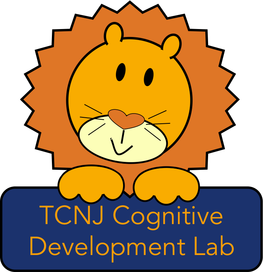Publications
Kibbe, M. M. & Stahl, A. E. (in press). An object's categorizability impacts whether infants encode surface features into their object representations. Infancy.
Kibbe, M. M. & Stahl, A. E. (in press). Objects in a social world: Infants' object representational capacity limits are shaped by objects' social relevance. Advances in Child Development and Behavior.
Stahl, A. E., Pareja, D., & Feigenson, L. (2023). Early understanding of ownership helps infants efficiently organize objects in memory. Cognitive Development, 65, 101274.
Stahl, A. E. & Kibbe, M. M. (2022). Great expectations: The construct validity of the violation-of-expectation method for studying infant cognition. Infant and Child Development, e2359.
Stahl, A. E. & Woods, L. (2022). Infants preferentially learn from surprising teachers. Infancy, 27, 887-899.
Silver, A. M., Stahl, A. E., Loiotile, R., Smith, A., & Feigenson, L. (2020). When not choosing leads to not liking: Choice induced preference in infancy. Psychological Science, 31, 1422-1429.
Stahl, A. E. & Feigenson, L. (2019). Violations of core knowledge shape early learning. Topics in Cognitive Science, 11, 136-153.
Stahl, A. E. & Feigenson, L. (2018). Infants use linguistic group distinctions to chunk items in memory. Journal of Experimental Child Psychology, 172, 149-167.
Stahl, A. E. & Feigenson, L. (2017). Expectancy violations promote learning in young children. Cognition, 163, 1-14.
Konishi, H., Stahl, A. E., Golinkoff, R. M., & Hirsh-Pasek, K. (2016). Individual differences in non-linguistic event categorization predict later motion verb comprehension. Journal of Experimental Child Psychology, 151, 18-32.
Stahl, A. E. & Feigenson, L. (2015). Observing the unexpected enhances infants' learning and exploration. Science, 348, 91-94.
Stahl, A. E. & Feigenson, L. (2014). Social knowledge facilitates chunking in infancy. Child Development, 85, 1477-1490.
Stahl, A. E., Romberg, A. R., Roseberry, S., Golinkoff, R. M., & Hirsh-Pasek, K. (2014). Infants segment continuous events using transitional probabilities. Child Development, 85, 1821-1826.
Kibbe, M. M. & Stahl, A. E. (in press). Objects in a social world: Infants' object representational capacity limits are shaped by objects' social relevance. Advances in Child Development and Behavior.
Stahl, A. E., Pareja, D., & Feigenson, L. (2023). Early understanding of ownership helps infants efficiently organize objects in memory. Cognitive Development, 65, 101274.
Stahl, A. E. & Kibbe, M. M. (2022). Great expectations: The construct validity of the violation-of-expectation method for studying infant cognition. Infant and Child Development, e2359.
Stahl, A. E. & Woods, L. (2022). Infants preferentially learn from surprising teachers. Infancy, 27, 887-899.
Silver, A. M., Stahl, A. E., Loiotile, R., Smith, A., & Feigenson, L. (2020). When not choosing leads to not liking: Choice induced preference in infancy. Psychological Science, 31, 1422-1429.
Stahl, A. E. & Feigenson, L. (2019). Violations of core knowledge shape early learning. Topics in Cognitive Science, 11, 136-153.
Stahl, A. E. & Feigenson, L. (2018). Infants use linguistic group distinctions to chunk items in memory. Journal of Experimental Child Psychology, 172, 149-167.
Stahl, A. E. & Feigenson, L. (2017). Expectancy violations promote learning in young children. Cognition, 163, 1-14.
Konishi, H., Stahl, A. E., Golinkoff, R. M., & Hirsh-Pasek, K. (2016). Individual differences in non-linguistic event categorization predict later motion verb comprehension. Journal of Experimental Child Psychology, 151, 18-32.
Stahl, A. E. & Feigenson, L. (2015). Observing the unexpected enhances infants' learning and exploration. Science, 348, 91-94.
Stahl, A. E. & Feigenson, L. (2014). Social knowledge facilitates chunking in infancy. Child Development, 85, 1477-1490.
Stahl, A. E., Romberg, A. R., Roseberry, S., Golinkoff, R. M., & Hirsh-Pasek, K. (2014). Infants segment continuous events using transitional probabilities. Child Development, 85, 1821-1826.
Press/Media Coverage
See below for recent news coverage of some of Dr. Stahl's research!
- NPR Wow in the World Podcast: This or That? How Babies' Picks Become Preferences
- TCNJ News: Making Sense of Baby Brainpower
- Johns Hopkins University: Babies' Random Choices Become Their Preferences
- New York Times: How Play Energizes Your Kid's Brain
- Popular Science Magazine: Aimee Stahl, Developmental Psychologist and Baby Magician at The College of New Jersey
- The Signal: College Welcomes Infants to Campus
- TCNJ News: What to Expect... When You're a Baby
- NPR’s All Things Considered: Why Babies Love (And Learn From) Magic Tricks
- CNN’s Sanjay Gupta: Surprise! A New Discovery About Your Baby
- Wall Street Journal: How 1-Year-Olds Figure Out the World
- CBC Radio’s Quirks and Quarks: Surprise Leads to Learning in Babies
- Good Morning America: Study Reveals Surprise Helps Infants Learn
- Smithsonian: Like Tiny Scientists, Babies Learn Best by Focusing on Surprising Objects
- PBS News Hour: Babies Resemble Tiny Scientists More Than You Might Think
- New York Magazine: Babies Learn More When Something Surprises Them
- LA Times: No Surprise: A Key to Infant Learning is Surprise
- CBS Philly: Babies Learn Best When They’re Surprised
- Scientific American: Babies Are Drawn to Objects That Defy Expectation
- New York Times: What Babies Know About Physics and Foreign Languages
